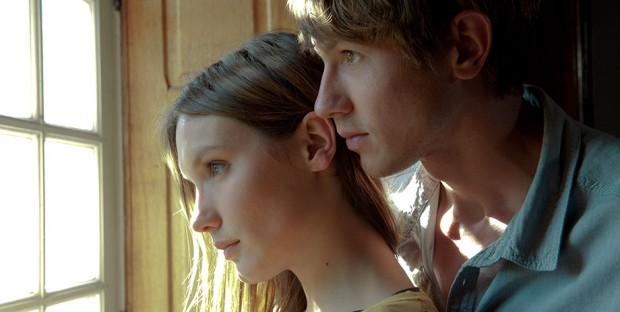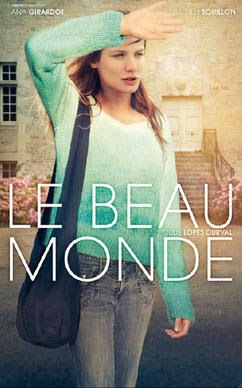Deceptively gentle and delightful, High Society is a distinctively French drama of manors from Julie Lopes-Curval who knows this territory intimately. (Lopes-Cuval’s first feature Seaside explored the lives of year-round residents who served vacations in a small coastal town.) High Society is a smart, observant and subtle coming-of-age story tracing the education of a young artist, Alice (Ana Girardot), a fashion student who spends her summers working. While away she meets Antoine (Bastien Bouillon), a fellow artist with lofty ambitions and considerable financial resources to make it happen. The courtship unfolds at a slower pace, mirroring the real rhythms of a long summer with very little to do, while the relationships shifts while in Paris.
Artists, of course, can be an awkward bunch; while Alice focuses on work in the wake of several exhausting critiques and studio visits, Antoine, effectively is “slumming it.” The director’s restrained approach is remarkable, giving agency to Alice as the tensions play out beautifully and organically. Emotionally awkward as Alice struggles to define her work, she’s more at home in the solitary confinement of her own developing artistic agenda than she is in the art world which Antoine has embraced. The tensions naturally come to a head at gallery opening/party they attend as Alice grows quietly frustrated being out of place.

Carefully walking a tight rope, both Alice and Antoine are sympathetic, with the latter doing what he must to get ahead and commenting on the urban condition he’s trusted into to follow his passions. Both Girardot and Bouillon are stunning, providing quiet and beautiful performances often with stunning emotional ambiguity. They both face challenges within academia they likely previously had not, including being told their work isn’t good enough by a patriarchal, middle-aged male art teacher.
Focusing on class divides, Alice is told by Antoine that privilege comes with a certain expectation. She must embody these norms and even “fight” for acceptance into “high society.” The hypnotic quality of this picture is that it documents these struggles as an original take on this subject matter. While Whit Stillman would have made even the most awkward of characters articulate, this film’s restraint, ambition and setting recalls Eric Rohmer’s A Summer Tale. Free to express ideas and ambitions, exposition comes largely in the form of observing verses listening. Free from the distractions of melodrama, High Society is not without intense passion and emotion, complete with scenes that are both erotic and real as Lopes-Curval’s camera observes instead of comments. The film’s complexity within its direct approach begs for further analysis in a future viewing.
High Society screened at TIFF. See our complete coverage below and the trailer above.


